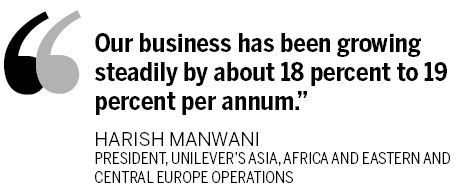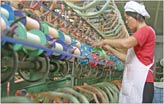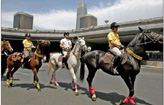Business
Unilever targets fivefold business increase in nation
Updated: 2011-06-14 08:05
By Femi Adi (China Daily)

JAKARTA, Indonesia - Unilever PLC, the world's second-biggest consumer goods company, plans to increase its business in China to as much as five times its current level, Asia chief Harish Manwani said.
"Our business has been growing steadily by about 18 percent to 19 percent per annum," Manwani, president of Unilever's Asia, Africa and Eastern and Central Europe operations told Bloomberg TV in Jakarta at the World Economic Forum on East Asia. "Our commitment in China is to build a business four- or fivefold" of what it is now, he said, without giving a target date.
The maker of Dove soap and Magnum ice cream has raised prices as costs for commodities such as crude oil gain. The economy of the world's most-populous nation may grow 9.5 percent this year, more than triple the US pace, according to economist estimates compiled by Bloomberg.
More than 55 percent of Unilever's business now comes from emerging markets, Manwani said. "Asia, emerging Asia, is a very important part of it. I'm very excited about business prospects in Asia."
Unilever derived 40 percent of its 44.3 billion euros ($63.7 billion) in revenue last year from Asia and Africa, according to data compiled by Bloomberg. The Americas contributed 33 percent and Europe 27 percent.
Cost volatility
Unilever said in April that profitability will drop in the first half because of higher costs. Unilever, which predicts a marginal improvement in the second half, said it expected the effect of rising input costs to be between 5 and 5.5 percent of sales this year, up from a February forecast of 4 percent.
Commodity-cost volatility is "unprecedented" this year, Unilever Chief Financial Officer Jean-Marc Huet said on April 28. Crude oil costs have affected the company's health and personal-care business while prices of edible oils including palm oil affect the food spread business, he said.
Inflation in developing economies "is something we probably know how to handle better, having been in the market for so many years", Manwani said. "Of course we have inflation, but the point we're making is we also have a portfolio which allows us to manage our business somewhat better than if you were just a single-play company."
Manwani is also chairman of the India unit Hindustan Unilever Ltd, the country's biggest-listed maker of consumer products, according to data compiled by Bloomberg. PT Unilever Indonesia is the largest household goods maker in the Southeast Asian country, according to the data.
Unilever's underlying first-quarter sales growth, which excludes the effect of acquisitions, disposals and currency fluctuations, was 4.3 percent, missing the 4.4 percent median estimate of eight analysts surveyed by Bloomberg News.
Unilever, which Manwani said has 2 billion customers globally, acquired an 89.4 percent stake in PT Sara Lee Body Care Indonesia in June 2010. Last month, it completed the purchase of Alberto Culver Co for $3.7 billion in cash.
"At this stage, we are trying to make sure that we make the most of some of the exciting brands," Manwani said.
Bloomberg News
Specials

Wealth of difference
Rich coastal areas offer contrasting ways of dealing with country's development

Seal of approval
The dying tradition of seal engraving has now become a UNIVERSITY major

Making perfect horse sense
Riding horses to work may be the clean, green answer to frustrated car owners in traffic-trapped cities